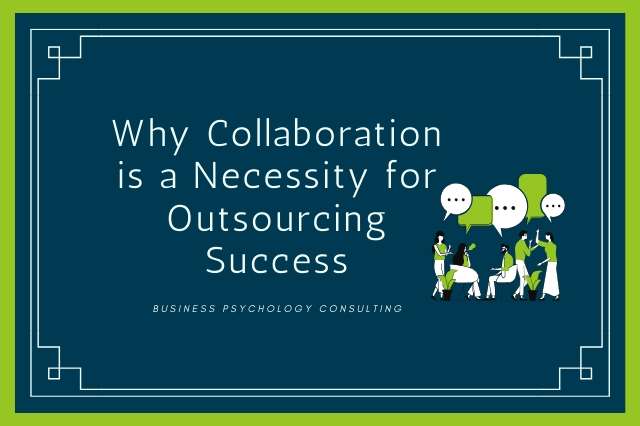- February 10, 2020
- Posted by: Sharon Lam
- Categories: Business Continuity, Disruption, Management Consulting, People, Planning, Strategy & Corporate Finance

Outsourcing is when your business delegates non-core processes to specialists that are forefront in their field that you think will best serve your business objectives. Theoretically, outsourcing should help save costs, improve your productivity, create more efficient processes that lead to quicker product to market.
However, not every business which outsources manages to get the most out of their outsourcing. This may be because of a number of reasons, such as simply hiring the wrong contractor for the job. It could be issues with the initial contract, where contracts are inadequately detailed for the task, or inflexible to deal with the situations as they rise. Otherwise, communication breakdowns are also a common factor to why outsourcing fails, as setting unrealistic goals, outsourced groups having poor or limited understanding of their product expectations, inadequate management review, and having poor project and contract management by the manager and contractor. All of these examples are only a few ways where negotiations and business between an outsourced resource and the business can ultimately fail the product they create together.
But in deeper examination of these issues, it seems like if we decide to dig deeper, all of these problems stem from one single problem.
In all these scenarios, there was insufficient collaboration, leading to a break down of communication through your operations.
Collaboration – and how it solves many of the issues in Outsourcing
Collaboration is essential to getting the most out of your outsourcing. Think about it – there are two parties in any outsourcing attempt. You, and your contractor. It’s a partnership – and therefore, like any other partnership, each party needs to be treated with respect with their responsibilities, and everyone has the right to know their duties, responsibilities, expectations, and working together to reach that goal as quickly as possible.

The ideal partnership between you and your contractor should, therefore, include stages like planning and how to implement that plan together, instead of merely dumping a task on your contractor in the belief that as specialists, they will naturally get it done faster and better without input from you. There is no guarantee of a successful product without clear communication of expectations, and a collaborative effort to make those expectations reality. Even the highest quality product can be useless if it doesn’t address the business objective it’s trying to solve.
Additionally, a lot of outsourced product development happens very far from the original business itself. Close collaboration, therefore, becomes even more essential to prevent communication lines from breaking down. The contract terms and expectations need to be clearly conveyed to the contractor, and the contractor should similarly state whatever conditions they have with their part of the development process. This can prevent any myriad of unwholesome surprises later, like a poor cultural fit, poor governance, unclear assumptions and misaligned interests.
Increase Speed and Efficiency
Like how our other articles stated, the main principle for collaboration is the knowledge that when collaboration works, time can be saved, innovative solutions can be reached, and efficiency can be maximised. Imagine the collaboration between a large corporate business outsourcing their IT department to specialists who are at the forefront of their field.
Despite the very real benefits that collaboration can create, many executives who oversee outsourced projects will agree that consistent and real collaboration between two groups can be an elusive goal, especially in outsourcing scenarios.
Why Choose Collappor8
If you are concerned about offshoring and want to use accomplished local talent, consider Collappor8. All our Project Manager are degree qualified and our teams are highly qualified. Our boutique size gives our clients confidence that someone will always be available to help them and that their custom is appreciated. Our one-stop-shop management consulting business thrives on driving productivity through innovation. We support DIY business and assist in closing the knowledge gap along the way. A form of on-the-job training.
